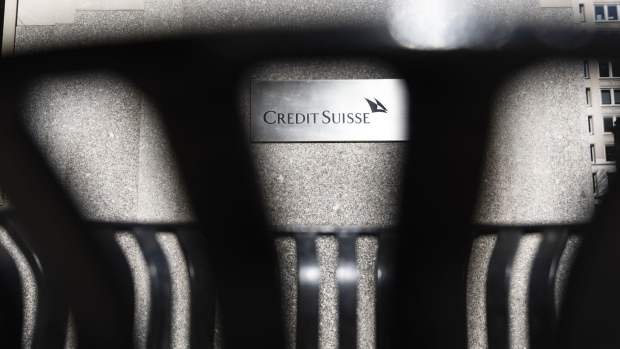British Columbia
Unaffordable affordable homes: Rent at some single room occupancy units more than $1,000
Advocates say rising rent at SROs are creating financial
barriers for those at risk of homelessness
Across downtown Vancouver, there are more than 160 single-room occupancy [SRO] buildings that contain small single rooms, usually with a shared kitchen and bathroom facilities.
The rental units serve as part of the city's affordable housing stock, typically offering a cheaper option than market rental apartments.
SRO housing is often seen "as the last stop before homelessness," according to the City of Vancouver's website.
But without any control measures in place, the price of rent at certain privately-owned SROs continues to climb, sometimes reaching more than $1,000 a month, which advocates say is creating financial barriers for the city's most vulnerable population.
$1,300 for a single room
Johnny Loudon has lived with his girlfriend at the Grand Union Hotel, an SRO on Vancouver's Downtown Eastside, for the past two months.
The couple pays $1,300 a month to rent a single room with a couple of shelves and a sink. The building has shared bathrooms and kitchens.
Loudon says he has seen rats, cockroaches, and bed bugs in his unit. He says fights are common, and there are bullet holes in the walls that have been mudded over. In their unit, the couple says they often feel so cold they have to use a space heater.
"It feels disgusting. It feels like a slap in the face considering how much I'm paying," said Loudon.
The couple spends most of their welfare and disability income on their rent.
"It's worth it for me and my girlfriend because we just wanted to get off the streets and out of the shelters. It's just too much violence," he said, although he also says he still feels unsafe at the Grand Union.
CBC News reached out to the owner of the Grand Union hotel for an interview but did not get a response.
If he could leave the Downtown Eastside altogether, Loudon says he would but feels stuck in a cycle, unable to escape.
"Being in addiction and not having enough money for a better place because the rent is so high here, it feels like the barriers are insane."
Vulnerable residents 'pushed out': advocate
Loudon's situation is just one example of a larger issue.
A quick search of Facebook Marketplace turned up two different SRO listings offering units for $1,000 a month or more.
In the listing for rooms at the Metro Residences in Strathcona, the suites are being promoted as "all-inclusive micro units."
Wendy Pedersen, executive director of the SRO Collaborative, says the average rent for an SRO unit is around $600 a month, but she continues to see some landlords lease suites for more than $1,000 a month while conditions continue to deteriorate.
And she says fewer and fewer residents of the Downtown Eastside can afford to live in the SROs.
"The problem is, there's no place for these people to go when they get pushed out by rent increases or deteriorating conditions," said Pedersen.
"If people think homelessness is bad now. It's only going to get much worse."
In Vancouver, there are two types of SRO buildings: not-for-profit managed or owned buildings that offer rent at shelter rates of $375 a month and privately owned and managed SROs.
The City of Vancouver says the privately owned and managed SROs are market rentals, meaning landlords can set their own rates and rent the units to whoever is willing to pay, not just low-income individuals.
Pedersen says about 4,000 SRO rooms in Vancouver are privately-owned and that rental stock is shrinking as the units are gentrified and rented at a premium.
City policy attempts to limit rent increases
In 2021, Vancouver's former city council passed the SRA Vacancy Control policy, a bylaw that attempted to ground ballooning rent prices at SROs.
The policy placed limits on how much a landlord could charge between tenancies. But it hit a speed bump after a pair of property owners independently brought lawsuits against the city.
The petitions were heard jointly, and a Supreme Court judge found that the city did not have the authority to set how a property owner changes rent for SROs when a tenant moves out because of conflicts with the provincial Residential Tenancy Act.
The policy is still tied up in the courts as the city has since filed an appeal.
The court's decision was disappointing news to Coun. Christine Boyle, who says more action is needed to protect SRO housing.
She's calling on the provincial and federal governments to work with the city to purchase private SRO buildings to bring them into public ownership.
"We can protect the affordability of those units and then work on a plan that upgrades them over time to build safe, clean, dignified supportive housing," said Boyle.
The Ministry of Housing declined an interview but said in a statement it is working with the federal government and the City of Vancouver on SRO improvements, either through renovating units into self-contained suites or replacing buildings with better housing options.
"We know SROs are not a long-term housing solution for a majority of people. SROs typically do not offer the standard of housing we want to see in communities in British Columbia," said the ministry.
"At the same time, there is a need to protect affordability in SROs to provide housing for people who are experiencing or at risk of homelessness in Vancouver."











